
East Jakarta: A Cultural and Culinary Mosaic
East Jakarta is a vibrant and diverse area of Indonesia's bustling capital city. Known for its rich cultural tapestry, it offers an array of experiences that will captivate any traveler. This neighborhood is a harmonious blend of traditional and contemporary, providing a unique glimpse into Jakarta's evolving identity. One of the key attractions in East Jakarta is Taman Mini Indonesia Indah, a sprawling cultural park that showcases the diverse cultures of Indonesia's many islands. Here, you can explore replicas of traditional houses, watch cultural performances, and even enjoy a ride on the cable car for a bird's-eye view of the park. For those who love the outdoors, the lush greenery of Halim Perdanakusuma's Air Force Base grounds and the Ragunan Zoo offer a refreshing escape from the urban hustle. The zoo, in particular, is home to a wide variety of indigenous animals and makes for a great family outing. Food enthusiasts will find East Jakarta a paradise of flavors. From street food stalls to upscale dining options, the culinary scene here is as diverse as its culture. Don't miss the chance to try local delicacies like 'soto Betawi' (a traditional beef soup) and 'gado-gado' (an Indonesian salad with peanut sauce). Shopping in East Jakarta is also a delight, with numerous traditional markets and modern malls catering to all tastes. Pasar Kramat Jati is a bustling traditional market where you can find everything from fresh produce to handmade crafts, while the Cibubur Junction Mall offers a more contemporary shopping experience.
Local tips in East Jakarta
- Visit Taman Mini Indonesia Indah early in the day to avoid crowds and enjoy cooler temperatures.
- Try the local street food but make sure to choose stalls that are popular with locals for the best and safest experience.
- Wear comfortable shoes as you will be doing a lot of walking, especially in the cultural park and markets.
- If visiting Ragunan Zoo, weekdays are less crowded compared to weekends.
East Jakarta: A Cultural and Culinary Mosaic
East Jakarta is a vibrant and diverse area of Indonesia's bustling capital city. Known for its rich cultural tapestry, it offers an array of experiences that will captivate any traveler. This neighborhood is a harmonious blend of traditional and contemporary, providing a unique glimpse into Jakarta's evolving identity. One of the key attractions in East Jakarta is Taman Mini Indonesia Indah, a sprawling cultural park that showcases the diverse cultures of Indonesia's many islands. Here, you can explore replicas of traditional houses, watch cultural performances, and even enjoy a ride on the cable car for a bird's-eye view of the park. For those who love the outdoors, the lush greenery of Halim Perdanakusuma's Air Force Base grounds and the Ragunan Zoo offer a refreshing escape from the urban hustle. The zoo, in particular, is home to a wide variety of indigenous animals and makes for a great family outing. Food enthusiasts will find East Jakarta a paradise of flavors. From street food stalls to upscale dining options, the culinary scene here is as diverse as its culture. Don't miss the chance to try local delicacies like 'soto Betawi' (a traditional beef soup) and 'gado-gado' (an Indonesian salad with peanut sauce). Shopping in East Jakarta is also a delight, with numerous traditional markets and modern malls catering to all tastes. Pasar Kramat Jati is a bustling traditional market where you can find everything from fresh produce to handmade crafts, while the Cibubur Junction Mall offers a more contemporary shopping experience.
Iconic landmarks you can’t miss
National Monument
Discover the National Monument in Jakarta, an iconic symbol of Indonesia's rich history and independence, set in a serene park perfect for exploration.
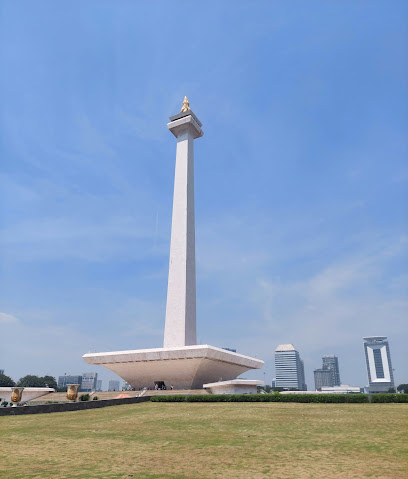
Suropati Park
Discover the tranquility of Suropati Park, a green oasis in Jakarta featuring beautiful landscapes, cultural events, and a perfect spot for relaxation and leisure.
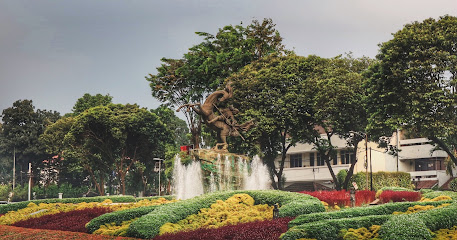
Menteng Park
Explore the tranquil beauty of Menteng Park, an urban oasis in Jakarta, perfect for relaxation and nature-inspired adventures.
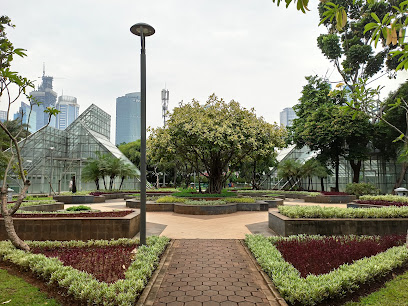
Selamat Datang Monument
Experience the welcoming spirit of Jakarta at the Selamat Datang Monument, an iconic symbol of Indonesia's cultural heritage and urban charm.

Tugu Proklamasi
Experience the essence of Indonesia's struggle for freedom at Tugu Proklamasi, a historic monument that commemorates the nation's independence.
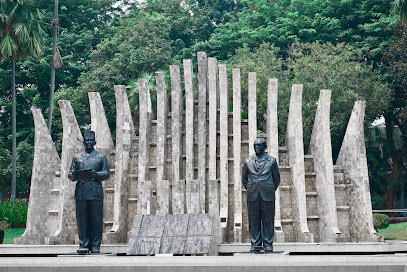
Tugu Tani
Discover Tugu Tani, Jakarta's iconic monument celebrating agricultural heritage and resilience, surrounded by lush gardens in the heart of the city.
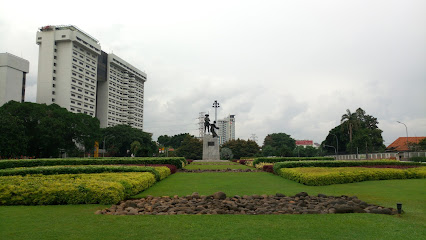
Museum Taman Prasasti
Explore Jakarta's rich history at Museum Taman Prasasti, home to beautifully preserved tombstones and historical artifacts in a serene garden setting.
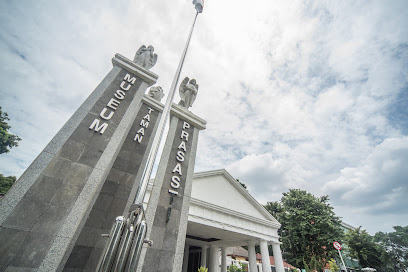
Patung Dr GSSJ Ratulangi
Explore Patung Dr GSSJ Ratulangi, a historical landmark in Central Jakarta, celebrating Indonesia's rich heritage and vibrant culture.
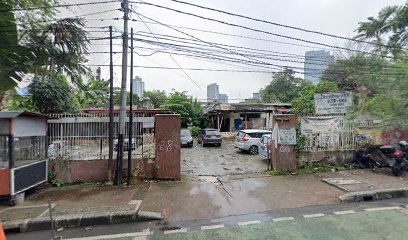
tempat tinggal
Explore the rich cultural heritage of Tempat Tinggal, a historical landmark in East Jakarta, reflecting Indonesia's vibrant history and architectural charm.
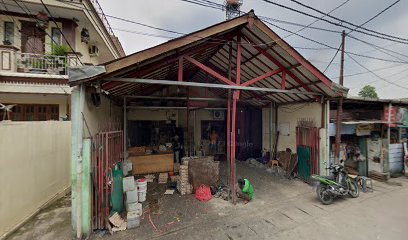
Indonesia
Explore Indonesia's rich cultural heritage through its historical landmarks, offering a unique glimpse into the past and vibrant traditions.
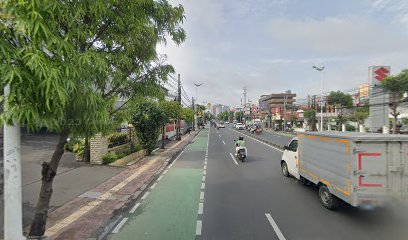
Unmissable attractions to see
National Monument
Discover the National Monument in Jakarta: A towering symbol of Indonesia's independence with stunning views and rich historical insights.
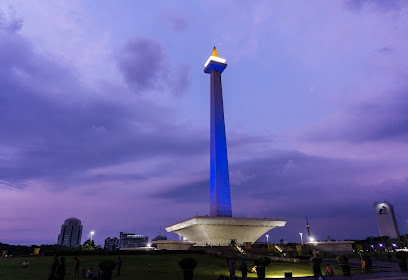
Dufan Ancol
Explore the thrills of Dufan Ancol, Jakarta's top amusement park, featuring exciting rides, delightful entertainment, and family fun in a vibrant setting.
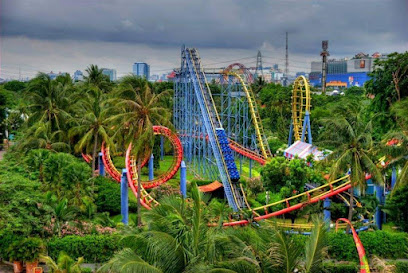
Sea World Ancol
Discover the enchanting marine life and thrilling attractions at Sea World Ancol, a must-visit destination in North Jakarta for families and adventure seekers.
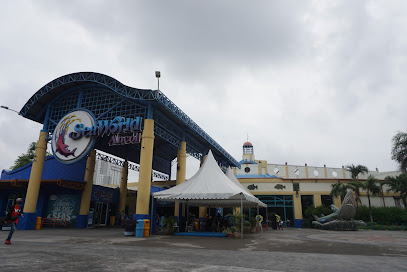
Lapangan Banteng Park
Experience tranquility at Lapangan Banteng Park, an urban oasis in Jakarta with lush landscapes, cultural monuments, and family-friendly spaces for relaxation.
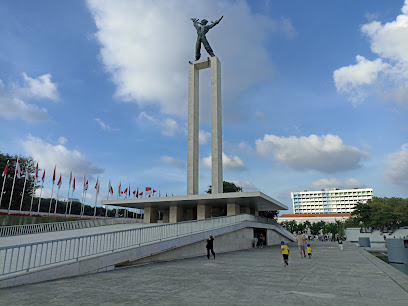
Menteng Park
Discover the tranquil beauty of Menteng Park, a lush city park in Central Jakarta, perfect for relaxation and outdoor activities.
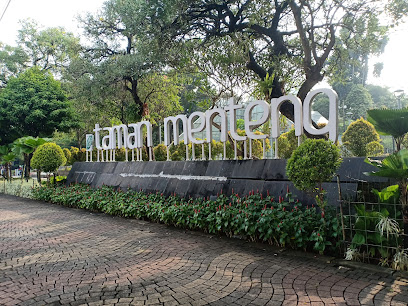
Ocean Dream Samudra - Ancol
Discover thrilling water rides, captivating marine life, and unforgettable shows at Ocean Dream Samudra, a premier theme park in Jakarta's Ancol area.
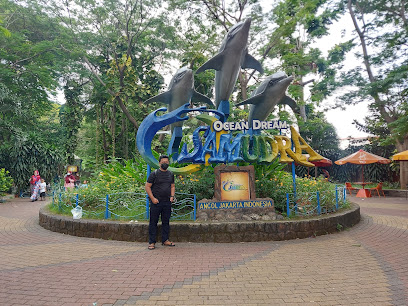
Selamat Datang Monument
Discover the Selamat Datang Monument in Jakarta, a stunning symbol of hospitality and a vibrant cultural hub perfect for tourists exploring the city.
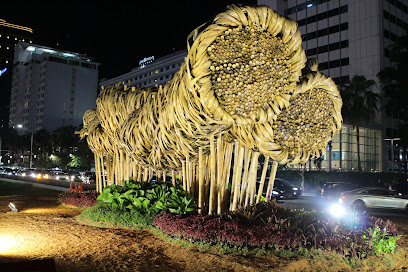
Jakarta AQuarium Safari
Explore the underwater world at Jakarta Aquarium Safari, where adventure meets education in an immersive experience for all ages.
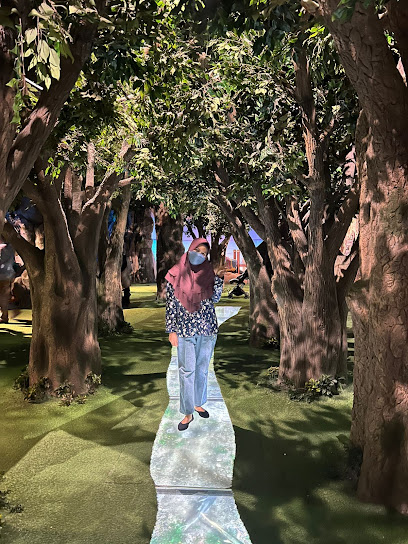
Tugu Proklamasi
Explore Tugu Proklamasi, a monumental tribute to Indonesia's independence featuring stunning sculptures and a serene garden in the heart of Jakarta.
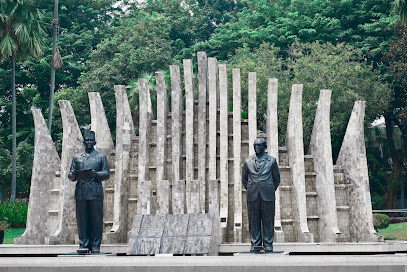
Allianz Eco Park
Explore Allianz Eco Park in Jakarta, a lush green haven combining nature and fun, perfect for families and nature enthusiasts alike.
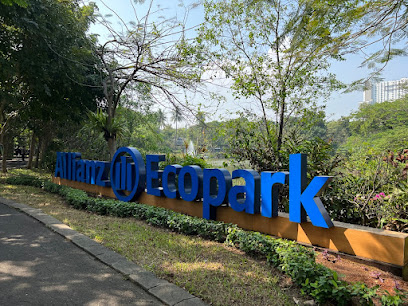
Jakarta Bird Land
Explore the enchanting Jakarta Bird Land, a vibrant aviary showcasing exotic birds amidst lush greenery in the heart of Jakarta.
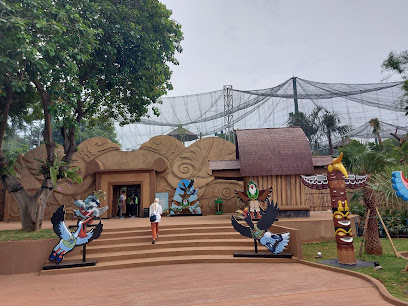
Lotte Alley
Experience the vibrant fusion of Japanese and Korean culture at Lotte Alley in South Jakarta, where culinary delights and unique shopping await.
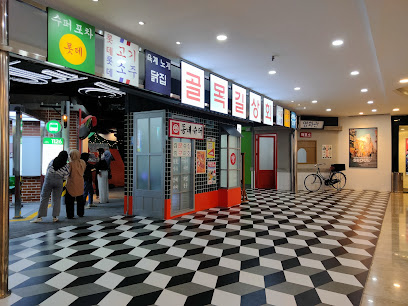
Jembatan Phinisi
Experience the charm of Jembatan Phinisi, a stunning bridge in Jakarta that offers breathtaking views and a taste of local culture.
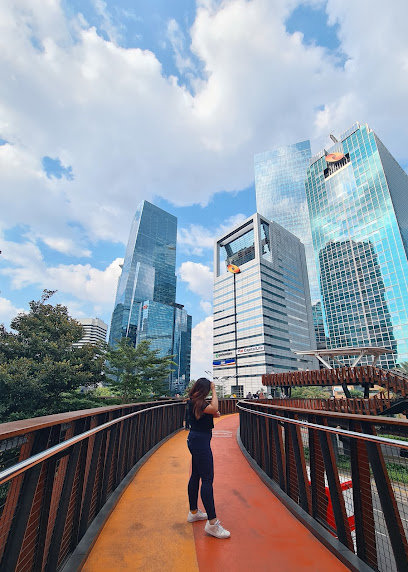
Sky Deck Sarinah
Discover breathtaking views of Jakarta from Sky Deck Sarinah, an iconic tourist attraction in the heart of the city offering stunning skyline vistas.
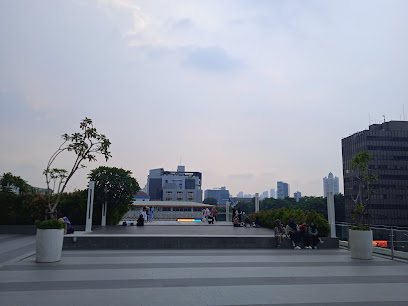
Essential places to dine
Seribu Rasa Menteng
Discover the essence of Indonesian cuisine at Seribu Rasa Menteng – where tradition meets elegance in every delicious bite.
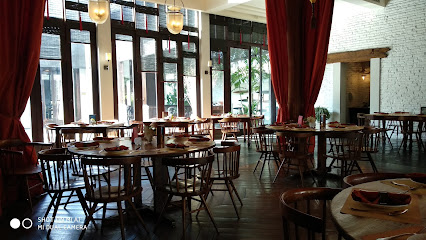
Plataran Menteng
Experience authentic Indonesian cuisine in an elegant setting at Plataran Menteng, where tradition meets contemporary culinary art.
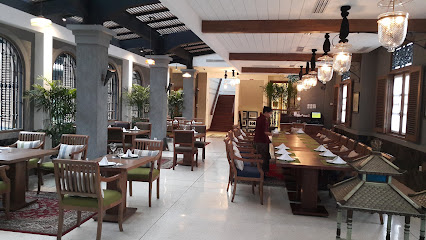
Kaum Jakarta
Discover the essence of Indonesian cuisine at Kaum Jakarta – where tradition meets contemporary flair in a vibrant dining experience.
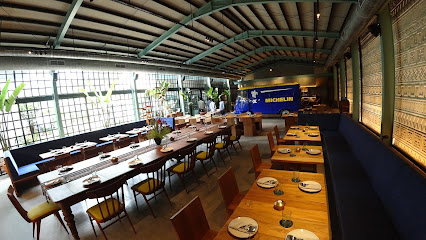
Lara Djonggrang
Experience the essence of Indonesia at Lara Djonggrang, where authentic flavors meet rich cultural heritage in Jakarta.

Social House
Discover Social House: Jakarta's premier destination for exquisite dining and vibrant nightlife amidst an elegant ambiance.
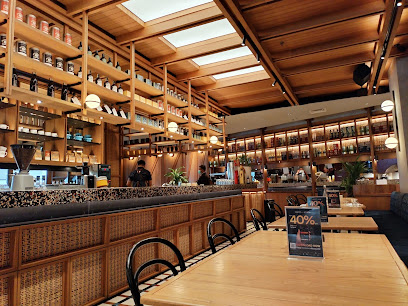
La Brasserie Restaurant
Experience exquisite dining at La Brasserie Restaurant in Jakarta, where local flavors meet international cuisine in an elegant setting.
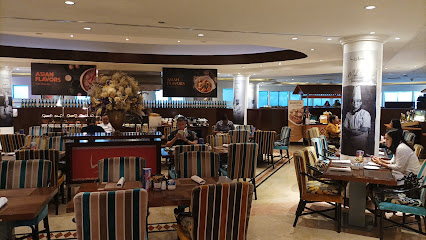
Harum Manis Restaurant
Discover authentic Indonesian flavors at Harum Manis Restaurant in Central Jakarta – an exquisite dining experience awaits you.
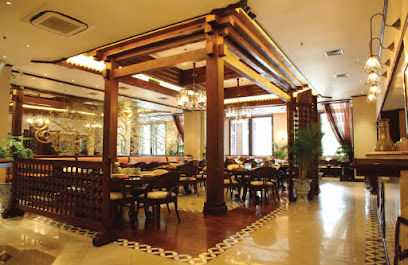
Signatures Restaurant
Discover the exquisite flavors of Indonesia and beyond at Signatures Restaurant, where every bite tells a story of culinary artistry.
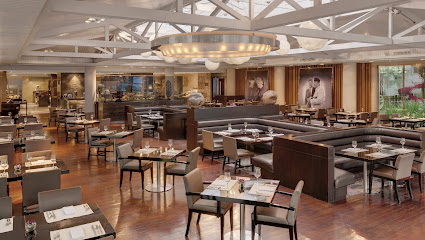
Sea Grain Restaurant & Bar
Discover exquisite fusion cuisine at Sea Grain Restaurant & Bar in Jakarta's DoubleTree Hotel, where modern elegance meets local flavor.
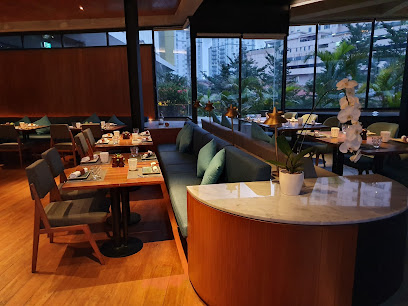
91st Street Restaurant
Experience authentic Italian cuisine at 91st Street Restaurant in Central Jakarta - where every dish tells a story.
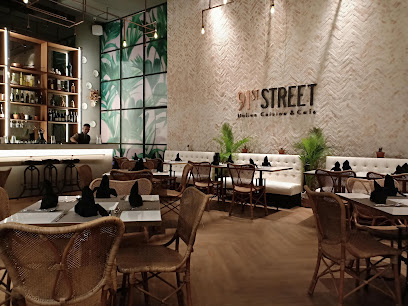
Markets, malls and hidden boutiques
Grand Indonesia East Mall
Discover the ultimate shopping experience at Grand Indonesia East Mall, where luxury meets local culture in the heart of Jakarta.
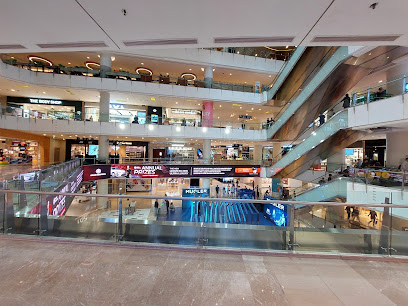
UNIQLO GRAND INDONESIA(SINTA LOBBY)Jakarta Pusat
Experience the latest fashion trends at UNIQLO Grand Indonesia, where style meets comfort in the heart of Jakarta.
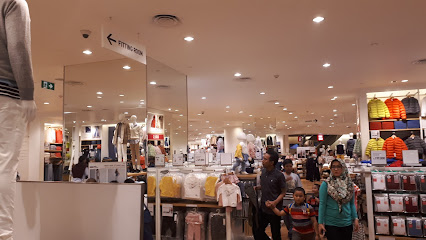
Central Department Store
Discover Jakarta's vibrant retail scene at Central Department Store, where shopping meets cultural experience in a modern setting.
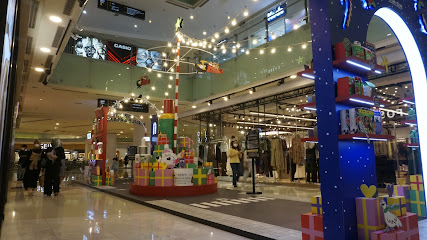
Alun Alun Indonesia
Explore Alun Alun Indonesia, the ultimate department store in Jakarta offering a unique blend of local crafts and international brands for every shopper’s delight.
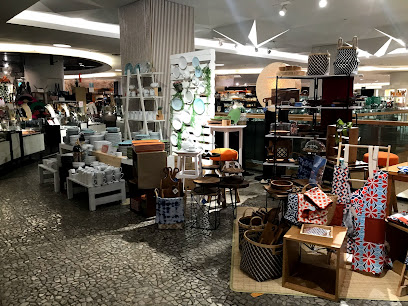
Star_Collection23
Discover shopping bliss at Star_Collection23, Jakarta's vibrant mall offering local and international brands, delicious eateries, and a lively atmosphere.
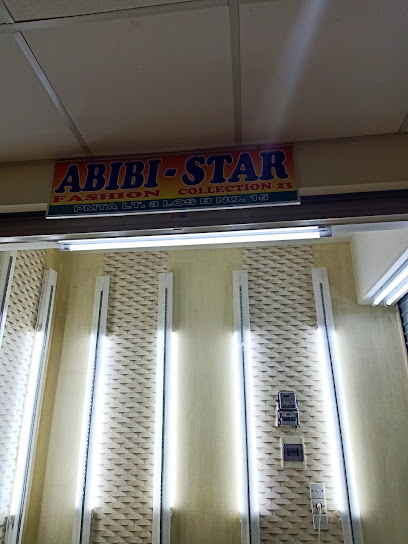
Store Shop Jakarta Timur
Explore Store Shop Jakarta Timur, a vibrant shopping destination in East Jakarta offering local crafts, delicious cuisine, and a lively atmosphere for all visitors.
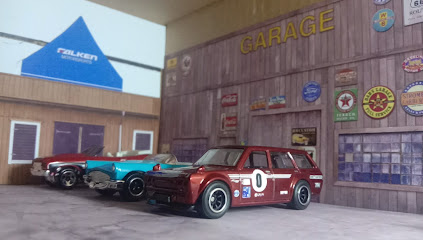
Unique Toko
Discover Unique Toko, a vibrant department store brimming with local treasures, fashion, and unique finds in the heart of the city.
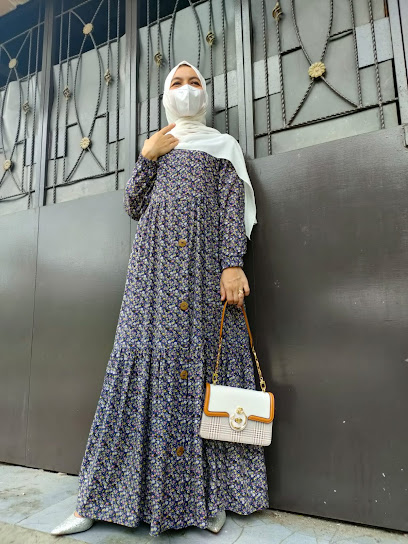
AntiQueshop
Explore AntiQueshop, a unique department store offering delightful antiques and local crafts that capture the essence of the region.

Unique Shop
Explore Unique Shop in North Jakarta for authentic Indonesian crafts, fashion, and souvenirs that reflect the region's vibrant culture.
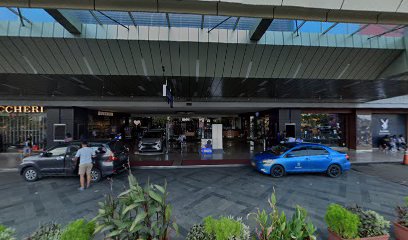
Savior Store Jakarta
Explore the vibrant shopping scene at Savior Store Jakarta, where local culture meets international flair in a bustling mall experience.
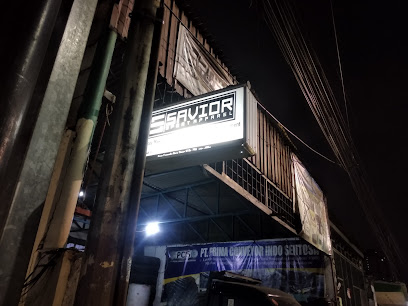
Essential bars & hidden hideouts
Melly's Garden
Experience the vibrant nightlife at Melly's Garden in Central Jakarta, a lively pub offering delicious food, drinks, and live music.
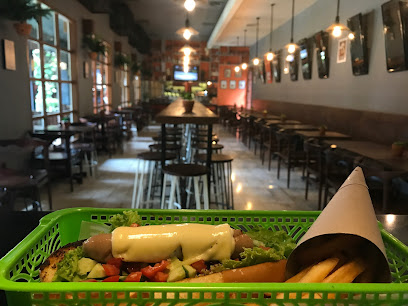
Camden Bar
Discover the vibrant nightlife at Camden Bar in Central Jakarta, where cocktails, music, and good vibes create unforgettable experiences.
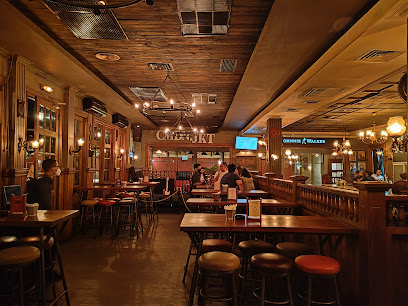
The Jaya Pub
Discover the vibrant nightlife at The Jaya Pub, a premier destination in Jakarta offering a lively atmosphere, delicious drinks, and memorable experiences.
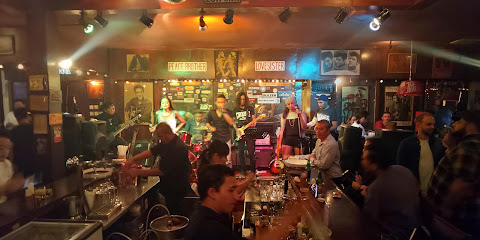
BART Jakarta
Experience the vibrant nightlife of Jakarta at BART, where expertly crafted cocktails and live music come together in a chic setting.
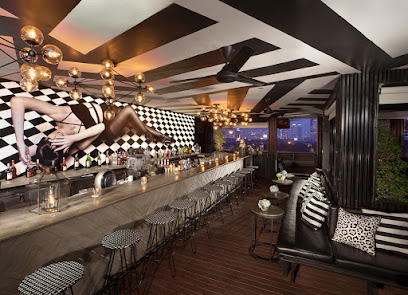
Penny Lane Pramuka
Discover the lively atmosphere and rich beverage selection at Penny Lane Pramuka, the heart of Jakarta's nightlife.
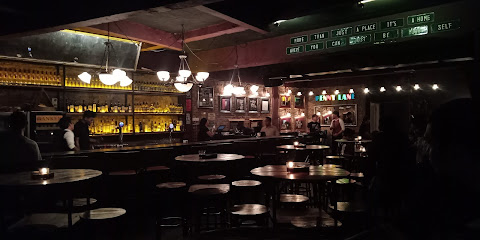
La Vue Rooftop Bar
Experience breathtaking views and exquisite cocktails at La Vue Rooftop Bar, the premier rooftop destination in Jakarta for unforgettable evenings.
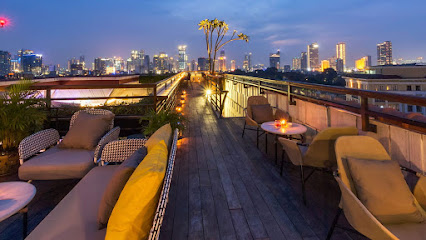
The Bar
Experience the vibrant nightlife of Central Jakarta at The Bar, where exceptional cocktails and a chic ambiance await you.
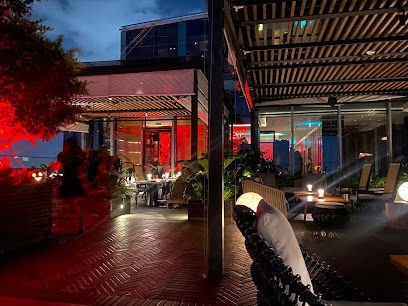
The Back Room - Pullman Jakarta Indonesia
Experience Jakarta's nightlife at The Back Room, where stylish cocktails and a vibrant atmosphere await in the heart of the city.
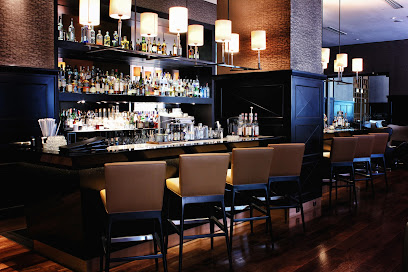
MO Bar
Experience Jakarta's vibrant nightlife at MO Bar, where luxurious cocktails and chic ambiance create the perfect evening escape.
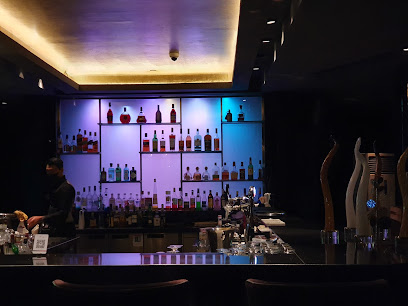
Best Brews
Experience Jakarta's nightlife at Best Brews, where exceptional drinks and vibrant atmosphere create unforgettable moments.
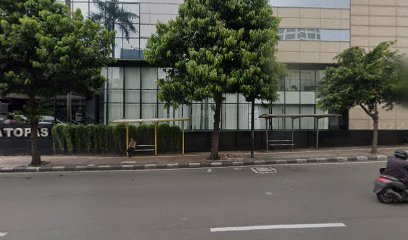
Local Phrases
-
- HelloHalo
[ha-loh] - GoodbyeSelamat tinggal
[se-la-mat ting-gal] - YesYa
[ya] - NoTidak
[tee-dak] - Please/You're welcomeSilakan
[si-la-kan] - Thank youTerima kasih
[te-ri-ma ka-sih] - Excuse me/SorryMaaf
[ma-af] - How are you?Apa kabar?
[a-pa ka-bar] - Fine. And you?Baik. Kamu?
[ba-ik. ka-mu] - Do you speak English?Apakah kamu bisa berbicara bahasa Inggris?
[a-pa-kah ka-mu bi-sa ber-bi-tsa ba-ha-sa Ing-gris] - I don't understandSaya tidak mengerti
[sa-ya tee-dak men-ger-tee]
- HelloHalo
-
- I'd like to see the menu, pleaseSaya ingin melihat menu, silakan
[sa-ya in-gin me-li-hat me-nu, si-la-kan] - I don't eat meatSaya tidak makan daging
[sa-ya tee-dak ma-kan da-yang] - Cheers!Selamat minum!
[se-la-mat mi-num] - I would like to pay, pleaseSaya ingin membayar, silakan
[sa-ya in-gin mem-ba-yar, si-la-kan]
- I'd like to see the menu, pleaseSaya ingin melihat menu, silakan
-
- Help!Tolong!
[to-long] - Go away!Pergi!
[per-gi] - Call the Police!Panggil polisi!
[pang-gil po-li-si] - Call a doctor!Panggil dokter!
[pang-gil dok-ter] - I'm lostSaya tersesat
[sa-ya ter-se-sat] - I'm illSaya sakit
[sa-ya sa-kit]
- Help!Tolong!
-
- I'd like to buy...Saya ingin membeli...
[sa-ya in-gin mem-be-li] - I'm just lookingSaya hanya melihat-lihat
[sa-ya hun-ya me-li-hat-li-hat] - How much is it?Berapa harganya?
[be-ra-pa har-ga-nya] - That's too expensiveItu terlalu mahal
[i-tu ter-la-lu ma-hal] - Can you lower the price?Bisa kurangi harganya?
[bi-sa kur-an-gi har-ga-nya]
- I'd like to buy...Saya ingin membeli...
-
- What time is it?Sekarang jam berapa?
[se-ka-rang jam be-ra-pa] - It's one o'clockSekarang pukul satu
[se-ka-rang pu-kul sa-tu] - Half past (10)Setengah (sepuluh)
[se-ten-gah (se-pu-luh)] - MorningPagi
[pa-gi] - AfternoonSore
[so-re] - EveningMalam
[ma-lam] - YesterdayKemarin
[ke-ma-rin] - TodayHari ini
[ha-ri i-ni] - TomorrowBesok
[be-sok] - 1Satu
[sa-tu] - 2Dua
[du-a] - 3Tiga
[ti-ga] - 4Empat
[em-pat] - 5Lima
[li-ma] - 6Enam
[e-nam] - 7Tujuh
[tu-juh] - 8Delapan
[de-la-pan] - 9Sembilan
[sem-bi-lan] - 10Sepuluh
[se-pu-luh]
- What time is it?Sekarang jam berapa?
-
- Where's a/the...?Dimana ...?
[di-ma-na] - What's the address?Alamatnya dimana?
[a-lam-at-nya di-ma-na] - Can you show me (on the map)?Bisa tunjukkan ke saya (di peta)?
[bi-sa tun-juk-kan ke sa-ya (di pe-ta)] - When's the next (bus)?Kapan yang berikutnya (bus)?
[ka-pan yang be-ru-tu-nya (bus)] - A ticket (to ....)Tiket (ke ....)
[ti-ket (ke)]
- Where's a/the...?Dimana ...?
History of East Jakarta
-
East Jakarta's development can be traced back to the Dutch colonial period, when it served as an agricultural and residential area for Dutch officials and their estates. The establishment of plantations and the construction of infrastructure laid the groundwork for the future urbanization of the area. The remnants of colonial architecture can still be seen in various parts of East Jakarta.
-
During World War II, East Jakarta was affected by the Japanese occupation from 1942 to 1945. The Japanese administration implemented significant changes in the local governance and economy, leading to the establishment of military installations and forced labor camps. The impact of this period is remembered as a time of hardship for the local population.
-
Following Indonesia's independence in 1945, East Jakarta began to grow rapidly, transforming from agricultural land to a bustling urban area. The influx of migrants from other parts of Java contributed to its demographic and cultural diversity. The establishment of new residential neighborhoods, commercial centers, and educational institutions marked this era of growth.
-
The 1990s saw a significant economic boom in Jakarta, with East Jakarta emerging as a key area for industrial and commercial development. Numerous factories and businesses were established, attracting a workforce from various regions. This industrial growth led to increased urbanization, with a surge in housing developments and infrastructure projects.
-
East Jakarta is known for its cultural diversity, with various ethnic groups including Betawi, Javanese, and Chinese communities. This multicultural environment is reflected in the local cuisine, festivals, and daily life. The presence of traditional markets and cultural events showcases the vibrant community spirit that defines East Jakarta.
East Jakarta Essentials
-
East Jakarta is accessible from various neighborhoods in Jakarta. The most efficient way is to use the TransJakarta bus rapid transit system, which connects multiple areas in the city, including Central Jakarta and West Jakarta. You can also take the commuter rail (KRL) to stations like Cawang or Jatinegara. Taxis and ride-hailing services like Gojek and Grab are widely available and convenient for direct travel.
-
East Jakarta features a mix of transportation options. The TransJakarta bus system runs several routes through the area. The KRL commuter trains serve key stations, making it easy to travel to surrounding neighborhoods. For a more local experience, consider using ojek (motorcycle taxis) or renting a bicycle in certain areas. Be cautious when cycling on busy roads, as traffic can be intense.
-
East Jakarta is generally safe for tourists, but it is wise to remain vigilant. Areas such as Cawang and Jatinegara have been reported to have higher rates of petty crime, including theft and scams targeting tourists. Avoid displaying valuables and be cautious in crowded places. It is advisable to stay within well-lit and populated areas, especially at night.
-
In case of emergency, dial 112 for police assistance, 118 for fire services, and 119 for medical emergencies. Familiarize yourself with the location of the nearest hospitals and police stations. It is recommended to have travel insurance that covers emergencies. For minor health issues, local pharmacies can provide over-the-counter medications.
-
Fashion: Do dress modestly, especially in religious sites. Avoid wearing revealing clothing. Religion: Do respect local customs; cover your shoulders and knees when visiting places of worship. Public Transport: Do give up your seat for elderly passengers; don't eat or drink on public transport. Greetings: Do greet with a smile and a nod; don't be overly familiar without consent. Eating & Drinking: Do try local street food and accept food offerings; don't waste food or refuse hospitality, as it's considered impolite.
-
To experience East Jakarta like a local, explore traditional markets such as Pasar Jatinegara for fresh produce and local delicacies. Try street food stalls for authentic Indonesian cuisine. Engage with local residents, who are often welcoming and eager to share their culture and stories. Visit local parks like Taman Mini Indonesia Indah, which showcases Indonesia's diverse culture and heritage in a single location.
Nearby Cities to East Jakarta
-
Things To Do in Bandung
-
Things To Do in Semarang
-
Things To Do in Yogyakarta
-
Things To Do in Poon Saan
-
Things To Do in Flying Fish Cove
-
Things To Do in Drumsite
-
Things To Do in Settlement
-
Things To Do in Greta Beach
-
Things To Do in Surabaya
-
Things To Do in Sentosa
-
Things To Do in East Coast Park
-
Things To Do in Marina Bay
-
Things To Do in Chinatown
-
Things To Do in Clarke Quay
-
Things To Do in Bugis









